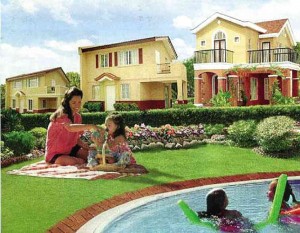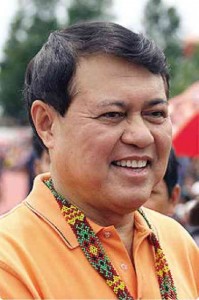Presidency’s loss, Vista Land’s gain
MANILA, Philippines—Around this time three years ago, Manuel V. Villar was depressed over his failed bid to capture the highest position in the land. Senator Villar was also at a loss over how, after all the votes had been counted, he ended up so far behind eventual President Benigno Aquino and a surprise strong contender, deposed president Joseph Estrada.
Villar, who had never before lost an election campaign, had been leading in the surveys in the months leading to the elections of 2010. But circumstances changed dramatically following the death of President Corazon Aquino, thus the overwhelming mandate given to her son.
Villar gallantly accepted the will of the people and while other politicians chose to recover from the wounds inflicted by a long, expensive and bruising presidential campaign by going on hiatus, he did the opposite. He instead channeled his efforts to helping his son Manuel Paolo make the real estate company that he founded even stronger than when he left it to pursue his political career.
Villar, whose term as senator will end in June, does not see himself going back to handling the day-to-day operations of the sprawling billion-peso company as his son has proven himself capable of handling the job of president and CEO of the company. But he does intend to be present in terms of direction setting and inspiration.
Villar’s timing could not be more perfect. Because of the economic upswing and the return of investor confidence in the Philippines, the real estate sector has been growing and the prospects are bright for his listed company, Vista Land and Lifescapes Inc., reputedly the country’s biggest homebuilder.
Record high
Last year, it posted a record-high net income of P4.4 billion from revenues of P16.3 billion. This was attributed to the strength of the real estate market, particularly the housing sector. Vista Land is the holding company of five business units—Brittany, Crown Asia, Camella Homes, Communities Philippines and Vista Residences—that cover all income groups. Total assets in 2012 reached P74.3 billion, a significant growth from P67.6 billion in 2011.
The company expects growth to continue in 2013 with demand for housing continuing to expand, particularly for the Camella mass housing projects in the provinces. It is already on the right track with income in the first quarter jumping 29 percent to P1.34 billion from P1.04 billion in the same period last year.
Villar tells the Inquirer in an interview that the company is strong enough to handle the expected stellar growth in its operations given its more conservative approach to borrowing and expansion. The group’s fortunes have reversed from 1997 when Vista Land’s predecessor C&P Homes was hit hard by the drastic decline in sales following the Asian currency crisis and its crushing debt burden.
Villar recalls how his company was hit by the “perfect storm” caused by the collapse in government financing for housing projects and his commitment to complete the housing projects, even if it meant using corporate funds as bank loans dried up. “Nawala yung gripo (the credit faucet dried up),” explains Villar. “We really struggled. Looking back, we probably put too much investment in raw land. I realized that you should not invest too much in hard assets that will not provide an immediate return. You should maintain high liquidity at all times because you do not know when another crisis will hit.”
Credit lines

VISTA Land launched 11 major subdivision projects in the first quarter, eight of which are in the low and affordable segment
Villar says he also realized that bank lines will only remain open when times are good. They immediately close down at the first sign of trouble.
“I really thought that the lines would always be open. They don’t. So do not rely completely on bank lines,” says Villar, who made the final decision to immediately reduce company debts using land as payment to creditors.
Villar says that the rebuilding process was long and painful, but it was worth it because of all the lessons learned. He says that because of that experience, systems have been improved and stricter financial controls were put in place.
Villar adds that he also learned at that lowest point in the company’s history that it pays to meet commitments to buyers who put their hard-earned money in their dream homes that the Villar group promised to turn into a reality.
“Even during the height of the crisis, we said to ourselves, we will meet our commitments to our buyers. Our money went to fulfilling that commitment and I am glad that we did because our image was not destroyed,” says Villar. “Not a single person will say that he was not able to get his house or his title from us. That is why our brands have remained strong.”
He adds that even during the most difficult years, he never lost faith in the housing market, saying that there will always be demand for this basic necessity and his company was in the best position to fill the need for homes. “Our firm has always believed that whatever happens with the economy, housing will never go. It is a basic necessity like food and clothing. It will never disappear,” explains Villar.
There were those who tried to convince Villar to just give up on the company and start anew, but he was committed to steering the company toward new highs. “We really went through very tough times but the commitment was unwavering. I saw that we had the assets needed to get ahead. We had the people, we had the land and the industry will never die. It may have declined, but it was alive. We just needed to do what we had to do to continue,” says Villar.
Recovery moves
These moves included a freeze on hiring, sale of assets and modification of systems and procedures. And in 2007, these measures culminated in the reorganization of the company and the return to the capital market to raise funds. C&P gave way to Vista Land, a holding company for all brands, and the company was warmly accepted by the market, especially by overseas Filipinos who continued to buy Villar housing products.
“The strength of the OFW market was a pleasant surprise and we survived because of that market,” says Villar, who sees himself spending more time with the Villar family foundation when he leaves the Senate.
Villar says the company will continue to pursue the OFW market even as it taps other sectors such as the condominium seekers of Metro Manila. This will mean expanding the footprint of the company to include more areas outside the traditional urban centers such as Cebu and Davao.
Vista Land launched 11 major subdivision projects in the first quarter, eight of which are in the low and affordable segment. These 11 projects have an aggregate value of about P6.4 billion. Outside of Metro Manila, Vista Land pursued projects in Bulacan, Bataan, Cagayan de Oro, Pampanga and Tarlac.
At the same time, Vista Land intends to move forward with plans to develop more communities in its major hubs like Evia in Daang hari, The Lakefront in Sucat, and Crosswinds in Tagaytay City.
Villar stresses, however, that the memories of the Asian crisis are still fresh and these help the company take a sober approach to expansion. “We are now far more focused and driven. The momentum is there and everybody is gung ho. But at the same time, the memories of 1998 are there. That is why the stability measures are there. Safety muna (Safety first),” says Villar, who will likely take over as chair of Vista Land.
“My son will remain president and CEO. I will be involved more in strategy and also do marketing. Our teamwork is pretty good. His strengths are finance, systems and focus, I am more about relationships and people,” says the 63-year-old Villar.
With the two of them putting their strengths together, Villar says the best is yet to come for Vista Land.
